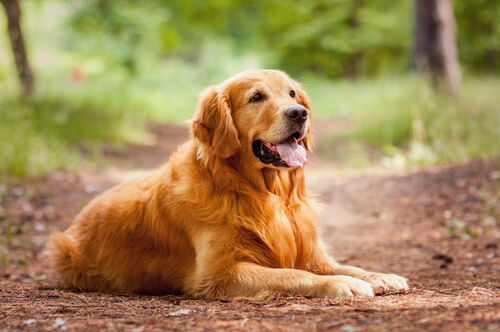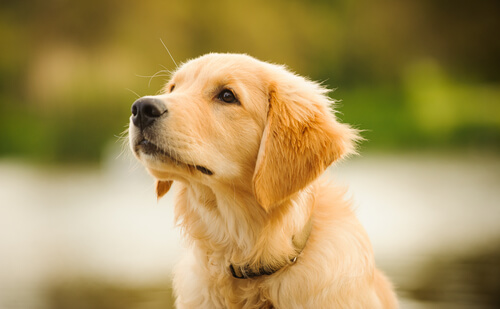Tips For Raising A Golden Retriever

When it comes to raising golden retrievers, you have to keep in mind the large number of topics and advice that is related to a balanced diet, effective training, correct exercise routines and all the equipment needed to do all of this.
Golden retrievers are large, beautiful and have a personality like no other. They love to smile, spend quality time with their owner, and love to welcome anyone into “their” home. Even if he barks a lot, he’ll keep you entertained and give you a tour of the entire house.
Things you need to know before you adopt one
There’s a lot of stories of families adopting puppies and unfortunately abandoning them a week later. This may be because it “urinated all over the house and needed too much attention” or because it “didn’t go well with our lifestyle.” Remember, when you bring a seven-week-old puppy home, you’re basically bringing home a baby.
Do you think you can train a child to use the bathroom and behave properly right after birth? Of course not. It takes time…and training. So, before making the decision to bring a puppy home, ask yourself if you can handle raising one at this time in your life.
Can you handle the work that’s involved with raising a puppy? Have you had a real discussion with your family about the responsibilities of owning a puppy? Raising a golden retriever is difficult. If you aren’t sure you can handle a puppy, consider adopting an older, quieter dog.

Train your puppy using a crate
Crate training is perfect for golden retrievers. It’s important your puppy understands that his crate isn’t a bad place. It’s a really great way to use as a safe place for the puppy because it practices good hygiene, eating and sleeping habits.
Golden Retriever training starts early
You may think that basic training is enough to keep your puppy from not destroying your home. However, even if you have a great attitude when you train him, it doesn’t mean it’s enough to do it effectively.
You should trust professionals because he/she has the specialized knowledge necessary to speed up and improve your golden retriever’s training. Of course, this means trainers and vets who are educated specifically on this topic. They can also help you train your puppy during his early stages.
Make sure you are committed to doing all the work needed to train your puppy. Your puppy won’t be able to learn everything just by one training session or a class once a week. It’s something that needs to be worked on at home every day. Also, you have to help get rid of your dog’s bad habits.

It’s important to understand your dog’s training
Golden retrievers are known for their intelligence and are very easy to train. The book The Everything Golden Retriever Book explains that you can improve your puppy’s learning ability with frequent interaction and a stimulating environment. Use interesting and interactive toys, and commit yourself to take out of your day to train him is necessary.
Doggy daycare is an effective and vital resource to turn a golden retriever puppy into a well-behaved adult. Also, make sure to train your puppy outside of class hours as well. It’s the only way to train your dog effectively, and you’ll be spending quality time with your puppy too.
Take care of his health
Golden retrievers’ health is very delicate when they’re puppies. A good quality meal will go a long way in keeping him healthy. Your puppy will need to see the vet on a regular basis, so be sure to take him before he’s ten weeks old.
Your veterinarian will run a thorough check-up on him. He will check his eyes, ears, belly, heart and lungs, and check his vaccination records. During a puppy’s their first visit, he will get vaccinated for distemper, adenovirus, parvovirus, and parainfluenza.
After the initial visit, you’ll usually schedule an appointment for your puppy a month later, or two more times, when he’s about six months or one year. Subsequent wellness appointments are usually annual.
This text is provided for informational purposes only and does not replace consultation with a professional. If in doubt, consult your specialist.